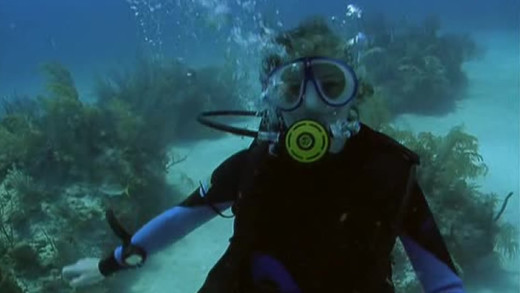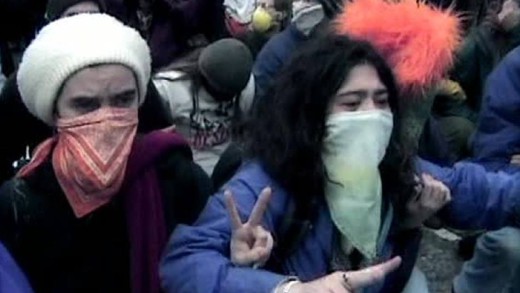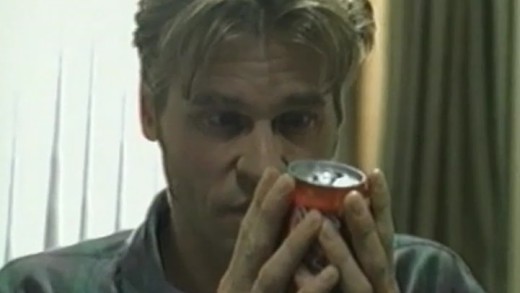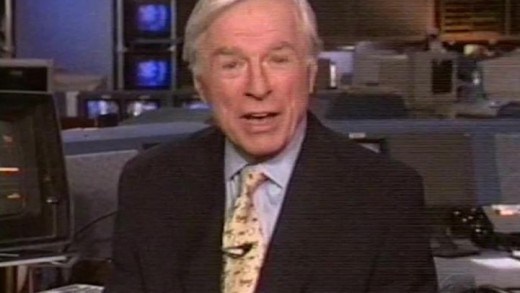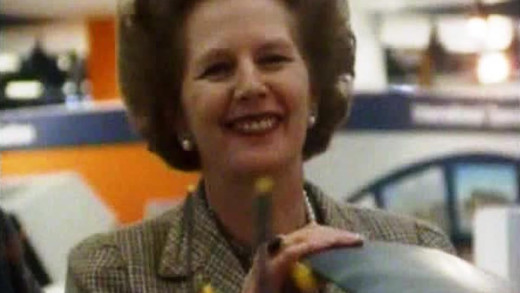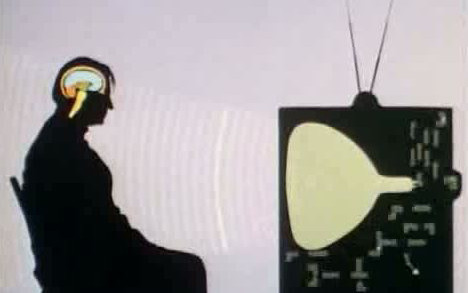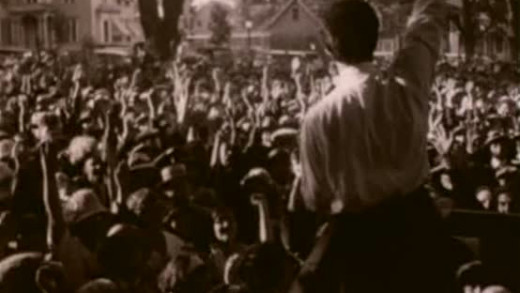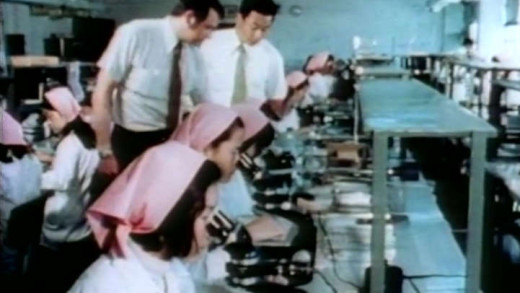Unprecedented looks at voting irregularities in the controversial presidential election in the United States from the year 2000. With a focus on the swing state of Florida, the recount, the ensuing supreme court decision in December, and future elections; the film also shows how fundamentally, many people--the majority being African-American--have outright been refused the ability to vote by a clever mix of legalese, electronic voting machines, political maneuvering and simple racism. A 1868 law prevented felons from voting--originally crafted to keep blacks from the polls in the wake of the Civil War--was resurrected in 2000, used to create a computerised list of people supposedly illegible to vote. The list had weird parameters and included as many as 57,000 to 91,000 non-felons; overwhelmingly targeting people of colour. On election day, these people were turned away at the polls. The role of electronic voting machines is also examined, as they are totally unaccountable and do not allow audits. The argument is made because of copyright over the software and trademarks. The machines also do not give paper receipts, so there is no physical evidence in case of the need for a recount. How does the United States--the so-called and self-proclaimed world-famous democracy--fair as one in light of this?
To many in both business and government, the triumph of the self is the ultimate expression of democracy, where power is truly moved into the hands of the people. Certainly the people may feel they are in charge, but are they really? The Century of the Self tells the untold and controversial story of the growth of the mass-consumer society. How is the all-consuming self created, by whom, and in whose interest?
They spend their days sifting through reams of market research data. They conduct endless surveys and focus groups. They comb the streets, the schools and the malls, hot on the trail of the "next big thing" that will snare the attention of their prey -- a market segment worth an estimated $150 billion a year. They are the merchants of cool: creators and sellers of 'popular culture' who have made teenagers the hottest consumer demographic...
Deep Trouble covers the concerns of commercial fishing from a global perspective. Many species of fish that are eaten every day all around the world are now seriously threatened or are critically endangered. The Southern Bluefin Tuna for one. Mainstream awareness of where market fish come from let alone how endangered they might be is minimal. As fish stocks dry up, supermarkets are now offering new and strange species from the deep sea. Bizarre-looking creatures are being dragged up in vast fishing nets from depths of 1,000 metres or more, and the methods used to catch them are horrifying. How sustainable is this?
The Coconut Revolution documents the struggle of the indigenous peoples in the Bougainville Island. The movement is described as the world's first successful eco-revolution, in that the successful uprising of the indigenous peoples of Bougainville Island against the Papua New Guinea army stopped the mining plans of the RTZ company to exploit their land for resources...
The myths of globalisation have been incorporated into much of our everyday language. "Thinking globally" and "the global economy" are part of a jargon that assumes we are all part of one big global village, where national borders and national identities no longer matter. But what is globalisation? And where is this global village? In some respects you are already living in it. The clothes in your local store were probably stitched together in the factories of Asia. Much of the food in your local supermarket will have been grown in Africa...
30 Frames A Second is an immersive first-person account of the events that unfolded during the week the World Trade Organisation came to Seattle in the United States, November 1999. The film is assembled from the perspective of 15-year veteran network-news cameraman Rustin Thompson, who became disillusioned with mainstream media and hence covered the WTO as an independent journalist. As such, even with press credentials for the event, Thompson is swept into the retribution of the state and police power which hit at the protests with tear gas, pepper spray, and police abuse. For him and the protesters alike, it begs the question about the functioning of the so-called democracies we live in, where civil liberties and human rights are curtailed in favour of facilitating the vast corporatocracy and global economic empire—precisely one of the points that sparked protests in the first place...
Behind the Screens explores how Hollywood movies have largely become vehicles for the ulterior motives of advertising and marketing by the studios and media owners, rather than genuine storytelling or simple entertainment in their own right. By showing examples from popular movies such as Wayne's World, Forrest Gump, The Lion King, Summer of Sam, and Toy Story, this documentary demonstrates how this trend toward hypercommercialism—through product placement, tie-ins, merchandising and cross-promotions—comes to define the modern movie. What are the problems with this, as well as the cultural and social impacts? Combined with analysis from film scholars, critics, political economists, and an Oscar-nominated screenwriter, Behind the Screens presents accessible arguments to these questions.
Recorded by over 100 media activists, this film tells the story of the enormous street protests in Seattle, Washington in November 1999, against the World Trade Organisation summit. Vowing to oppose--among other faults--the WTO's power to arbitrarily overrule nations' environmental, social and labour policies in favour of unbridled corporate greed, thousands of people from all around the United States came out in force to stop the summit. Against them was a brutal police force and a hostile media. This Is What Democracy Looks Like documents the struggle, as well as providing a narrative to the history of success and failure of modern political resistance movements.
The Mayfair Set is a four part series that studies how capitalists overtly and surreptitiously came to prolifically shape governments during the 1980s, epitomised by the Thatcher government in Britain at the time. But the corporate influence of political power doesn't simply arrive, it rather culminates after decades of engineering rooted in the economic collapse from the aftermath of the Second World War. This series focuses on the unreported and almost unseen approach that capitalists have taken since the 1940s to gradually take control of the political systems of not only the United States and Britain, but elsewhere around the world—exemplified by the boom of globalisation.
Produced twenty years ago, and even several years before the rise of Fox News, The Myth of the Liberal Media is possibly relevant now more than ever. The film dissects how news content gets shaped within a narrow and ultimately conservative institutional framework that marginalises other perspectives, filtering news events through a lens that serves power. Featuring scholarly analysis from Justin Lewis, Edward Herman and Noam Chomsky, The Myth of the Liberal Media asks: If you want to understand the way a system works, you look at its institutional structure. How it is organised, how it is controlled, how it is funded. The documentary examines the relationship advertising has in funding the media, and how this sets agendas, as well as exploring certain narratives that are propagated through a number of case studies that reveal how these mechanisms ultimately serve power instead of public interest.
Globalisation has gone to great lengths to coerce many countries around the world to open 'free trade zones' for Western markets, where businesses receive special tax benefits and other rewards for operating factories and exploiting cheap labour. The argument, as is always cited, is for growth of the global economy. Free Trade Slaves sets out to examine these ideas by looking at the realities of such practice. Told from the perspective of the workers in Sri Lanka, El Salvador, Mexico and Morocco; the film exposes systemic human rights abuses, harrowing environmental destruction, birth defects and other long lasting health problems and social issues. The filmmakers suggest that workers around the world need to assert the right to unionise and organise together to demand and retain decent conditions, and that consumers should do their part by boycotting companies that continue to abuse people and the environment.
The Daily Mirror used to be a peoples' paper that respected its readers and earned trust and affection. But that changed out of all recognition when the British public were told that the new information technology, heralded by The Sun's move to Wapping, would bring a greater variety of newspapers and a more diverse media. Instead, what happened was rapid moves toward contracted press controlled by ever fewer proprietors. John Pilger describes the downfall of his old paper and the all-pervasive influence of Rupert Murdoch...
Taken for a Ride details the conspiracy led by General Motors to buy up and dismantle public transport lines throughout the United States in the 1930s. Across the nation, tram and train tracks were torn up--sometimes overnight--and diesel buses placed on city streets. The highway lobby then pushed out a vast network of urban freeways that fuelled suburban development, increased auto dependence and elicited passionate opposition...
John Pilger and David Munro look behind political rhetoric to discover the hidden world of international arms dealing...
Pandora’s Box
Pandora's Box -- A fable from the age of science, is a six part series examining the consequences of political and technocratic rationalism, tying together communism in the Soviet Union, systems analysis and game theory during the Cold War, economy in the United Kingdom during the 1970s, the insecticide DDT, Kwame Nkrumah's leadership in Ghana during the 1950s and 1960s and the history of nuclear power.
Manufacturing Consent -- Noam Chomsky and the Media explores the political life and ideas of Noam Chomsky, the renowned American linguist and political activist. Drawing on specific examples such as the corporate media coverage of the Indonesian occupation of East Timor and the atrocities of the Khmer Rouge regime of Cambodia, Manufacturing Consent shows how the collusion of government and media running the powerful propaganda machines that manipulate the opinions of the masses, is manufacturing consent.
Denied a sense of nationalism since the second World War, Japanese society slowly re-established itself as a 'corporate' society in the eyes of the west, with hi-tech industry and mass manufacturing. Japan, Behind The Mask reports on the contrast between this popular image and the stereotypes of Japanese culture, revealing the reality of the lives of ordinary people who do not fit the image; the extraordinary part played by women; and the subtle, yet forceful way the Japanese establishment is today reclaiming its nationalism...
Pepsi vs. Coke in The Ice Cold War traces the history of the worldwide struggle for soft drink supremacy by the Coca Cola Company, against the backdrop of World War II. The war was the perfect vehicle for Coca-Cola distribution, including to the Nazis. Bottling plants on front lines were paid for by the US war department. Nixon got Kremlin supremo, Khrushchev, to pose drinking Pepsi, which became the first US product made in the Soviet Union. In 1949, Mao kicked Coca-Cola out of China. President Carter got it back in 1978. In Chile, Pepsi Cola's boss ran a daily paper which was used by the CIA to help Pinochet's bloody coup...
Along the way to winning an eight-hour workday and fair wages in the early 20th century, the Wobblies were one of the few unions to be racially and sexually integrated and often met with imprisonment, violence, and the privations of prolonged strikes. The Wobblies airs a provocative look at the forgotten American history of this most radical of unions, screening the unforgettable and still-fiery voices of Wobbly members -- lumberjacks, migratory workers, and silk weavers -- in their 70s, 80s, and 90s.
Controlling Interest is one of the first documentary films to provide a critical analysis on the growth of multinational corporations, and their impacts on people and the environment. Upon its release, Controlling Interest quickly became a standard audio-visual text for those concerned about the growing impact of multinational corporations, examining how the ever-increasing concentration of money and power affects employment in the United States, shapes patterns of development across the world, and influences foreign policy. This is the film that helped kick-off the anti-globalisation movement. Remarkably candid interviews with business executives provide a rare glimpse of the reasoning behind corporate global strategy, and the never-ending search for resources, ever-cheaper labour, and the commodification of life. The film documents the impact of corporate decisions on people around the world, including how "freedom" has come increasingly to mean the freedom of global corporations to operate without restriction. Some of the case studies include Massachusetts' declining machine tool industry, Brazil's "economic miracle," and Chile before and after the 1973 coup.
Thalidomide: The Ninety-Eight We Forgot follows a four-year investigation on behalf of a group of children damaged at birth by the drug Thalidomide which was introduced in the late 1950s to treat morning sickness and to aid sleep. The drug caused birth deformities, such as phocomelia, with more than 10,000 children in 46 countries born with deformities. This film investigates why a group of people are excluded from compensation from the effects of Thalidomide by various legal proceedings—still relevant today in the context of how the legal system continues to protect corporations at the expense of life itself.



